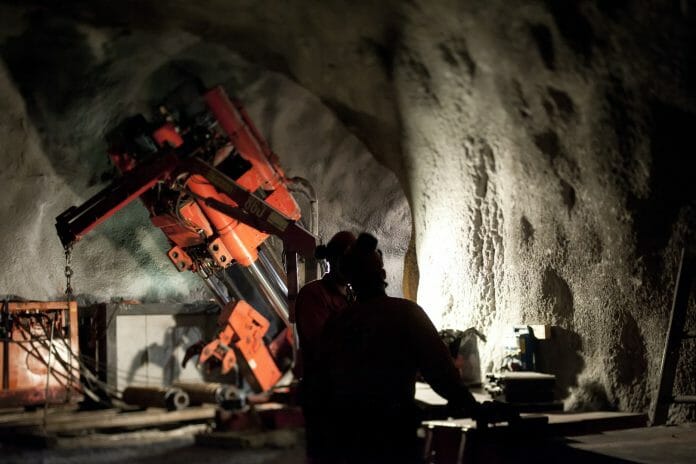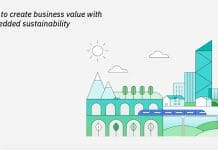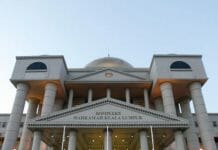By Swedish Embassy in Malaysia,
Global warming is the single most pressing matter that we have to tackle and the responsibility to reduce greenhouse gas emissions is something that we all have in common. Let me share some of the things that are happening in Sweden in the industry sector by taking a look at steel-production, sustainable mining and green batteries. In order to attract investments in these sectors, and many others, it has turned out that access to affordable renewable energy has been of key importance.
Sweden is aiming to be one of the world’s first fossil-free welfare nations. We are going to have zero net greenhouse gas emissions by 2045 at the latest – that is our long-term target – and to achieve negative net emissions after that. One piece of the puzzle to achieve this ambitious goal is Fossil-free Sweden which is a Government initiative launched prior to the global climate summit in Paris in 2015 with a clear message: Sweden can and will be fossil-free.
Through this initiative, the Swedish Government wants to mobilize the climate effort commitments of our entire society, and provide various actors with the opportunity to showcase their efforts under the same umbrella.
Municipalities, manufacturing companies, architects, industry organizations, think tanks and retail chains are among the stakeholders participating in Fossil-free Sweden and contributing through ambitious targets and measures to reduce emissions.
Under the fossil-free Sweden umbrella, 22 industrial sectors have developed road maps showing how they can become fossil-free or climate-neutral while at the same time boosting their competitiveness. Based on this, Fossil-free Sweden now aims to identify and reduce obstacles for several upcoming industrial projects that will contribute to more jobs and greater welfare in Sweden while also providing the greatest global climate benefit.
The most talked-about projects so far are the HYBRIT development project in which steelmakers SSAB, LKAB and the electricity producer Vattenfall are collaborating on a process to enable the reduction of steel from iron ore using hydrogen instead of carbon, and Northvolt, which will be Europe’s biggest battery factory focusing on sustainability and recycling.
HYBRIT – The biggest change in steel production in over 1,000 years
HYBRIT – short for Hydrogen Breakthrough Ironmaking Technology – is a joint venture between SSAB (global leader in high-strength steels), LKAB (Europe’s largest iron ore producer) and Vattenfall (one of Europe’s largest electricity producers), aiming to replace coal with hydrogen in the steelmaking process and constitutes a groundbreaking effort to reduce CO2 emissions and de-carbonize the steel industry.
The goal is to replace coking coal, traditionally needed for ore-based steel making, with hydrogen. As many of us know, hydrogen is the most abundant chemical substance in the universe and electricity can be used to decompose water into oxygen and hydrogen gas. The result will be the world’s first fossil-free steel-making technology, with virtually no carbon footprint. This will be the biggest change in steel production in over 1,000 years.
Sweden’s national target to reach zero net emissions of greenhouse gases defines the future pathway for the country’s steel industry since it is one of the highest carbon dioxide-emitting industries, accounting for up to 7 percent of global, and 10 percent of Swedish CO2 emissions. And even though the existing LKAB-SSAB production system is one of the most efficient of its kind in the world, it still emits around 6 million tons of CO2s per year in Sweden.
The Swedish Government offers favorable conditions for HYBRIT to contribute to our national targets, including high-quality niche production of iron-ore pellets, a specialized and innovative steel industry, and an abundant supply of fossil-free electricity.
In a circular economy recycling is an important part of the concept, and steel, not surprisingly, happens to be one of the world’s most recycled materials. Once it has been produced, the material can be used again and again via a scrap-based production route. Steelmaking from recycled scrap is estimated to increase drastically, but only by utilizing ore-based virgin iron can the overall demand for steel be met in the next few decades.
And we will need steel in the future! In 2050 the steel demand is expected to increase to 2,800 Million tons from 1,600 Million tons that we use today. About half of that will be scrap-based recycled steel and the other half will be made from iron ore. And Sweden accounts for 91.5 percent of the iron ore produced in the EU. In LKAB’s mines alone the equivalent of six Eiffel Towers’ worth of iron ore – in terms of the quantity of steel – is mined every day.
A perhaps somewhat technical but yet simplified explanation of the shift that is going to happen looks like this: Ore-based steelmaking today requires the use of coke in a blast furnace. The iron oxide and carbon then react to form CO and CO2 gases, as well as metallic iron. Fossil-free steel production will eliminate the formation of CO2, by using fossil-free reductants and renewable energy sources. In the case of HYBRIT, iron metal is produced by using hydrogen gas as the main reductant. The off-gas of the reduction process is water resulting in a solid porous sponge iron, suitable for steelmaking.
The SSAB roadmap entails a first transition step to electric melting in 2025 and a second step to electric melting before 2040. After this development, electricity from renewable sources will be the primary energy carrier and consumption is expected to increase to around 15 TWh, primarily to be used for hydrogen electrolysis and steel-melting processes. A lot of this new renewable electricity will come from further investments in onshore and offshore wind farms.
LKAB’s own industrial project for carbon-free steel products
Very much consistent with the HYBRIT project, LKAB recently announced its own industrial project with a new strategy representing the biggest Swedish industrial investment ever with annual investments of SEK 10 to 20 billion (roughly RM 9 – 18 billion) over 20 years. By offering carbon-free products, LKAB estimates that it can more than double its annual sales up until 2045, and have the ability to supply the world market with the essential carbon-free iron when the global economy transitions and starts to build tomorrow’s green railways, wind turbines, electric cars and industrial machinery. This plan is thus based on a commercial assessment of the future market.
As LKAB embarks on this transformation, the largest in its 130-year history, its technology and iron and steel production processes will fundamentally change and provide two to three thousand new jobs every year in Kiruna and Gällivare during the 20-year construction process. The Group’s entire production will shift to a carbon-free sponge iron using a process similar to the one currently under development with HYBRIT.
When exported, the annual reduction of emissions by its customers in the Swedish and international steel industry will be 35 million tons which corresponds to two thirds of Sweden’s total territorial carbon emissions, or three times the emissions from all private cars in the country. Thus, Sweden will not only be the first country in the world to produce fossil-free steel, but also the first country to export fossil-free iron to the whole world.
Sustainable mining – an opportunity to extract rare earth elements
Reducing emissions when producing is only one part of the steel sustainability puzzle. Sustainable mining is another. Mining generates huge quantities of waste rock that have to be broken down and disposed of in order to get to the iron ore.
That is why LKAB is establishing the ReeMAP Industrial Park which has the potential to become a center for the chemical engineering industry in northern Sweden using innovative technology to extract tomorrow’s resources. The aim of the ReeMAP Park is to apply fossil-free processes for recycling mine waste from LKAB’s iron ore production and to upgrade it to phosphorus products and rare earth elements (REE).
REE products, owing to import dependency and their importance for our economy, are classed by the EU as critical raw materials. Additionally, gypsum and fluorine products will also be produced at the industrial park, through hydro chemical processes.
LKAB is a partner of the European Raw Materials Alliance which aims to increase the degree of self-sufficiency in critical raw materials in the EU. Initially, the alliance will focus on REE. When ReeMAP is implemented, LKAB will have the potential to produce 30% of the current EU requirement for these materials and up to 100 percent of certain metals. Given that REE are currently not mined in the EU, this has a huge geopolitical importance.
One example of an application containing REE is permanent magnets. These magnets can be found in electric motors and wind turbines. Other metals include vanadium which is a battery metal and magnetite which can be used for storage of solar energy. Therefore, controlling these value chains is important for other strategic applications and for the green transition.
The Northvolt project and green batteries
Another industrial project under the Fossil-free initiative worth taking a closer look at is the Northvolt project which will manufacture green batteries mainly for the transport sector.
In the northern Swedish town Skellefteå two lithium ion battery gigafactories are under construction. Northvolt will soon be a European supplier of sustainable, high-quality battery cells and systems. Founded to enable the European transition to a decarbonized future, the company has made swift progress on its mission to deliver the world’s greenest lithium-ion battery with a minimal CO2 footprint. Northvolt cell manufacturing will be powered by 100 percent renewable energy and it will need a lot of electricity, at least 300 megawatts – which is twice the consumption of the whole of Skellefteå.
The municipally owned power company Skellefteå Kraft is confident, however, and claim that they can provide “the world’s cheapest, most stable electricity, and it’s 100 percent renewable”.
Furthermore, the establishment of the battery factories – one of the biggest industrial investments in Europe – is set to bring thousands of new jobs. After decades of dwindling population, when at one point over a thousand flats with the public housing company were standing empty, Skellefteå is now preparing to grow from 72,000 inhabitants to closer to 100,000.
To conclude these are just some examples of what Sweden is doing to reach the target of becoming a climate-neutral state while at the same time increasing our competitiveness in these business sectors.
Other industry sectors, such as aviation, cement, concrete, forest, construction, heavy road haulage, have also adopted roadmaps describing how they will become fossil-free and which technologies that need to be developed. Our experience and knowledge in implementing green technologies are not limited to Sweden but could be used by many countries around the world. After all, global warming is a problem we all share and one that requires international efforts.









